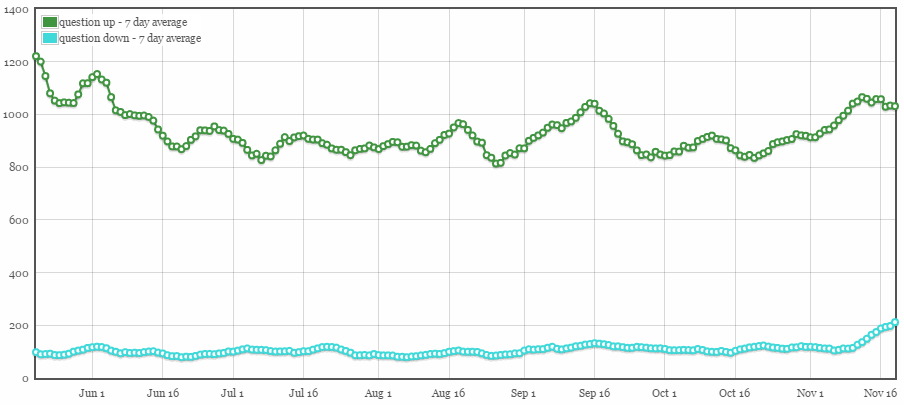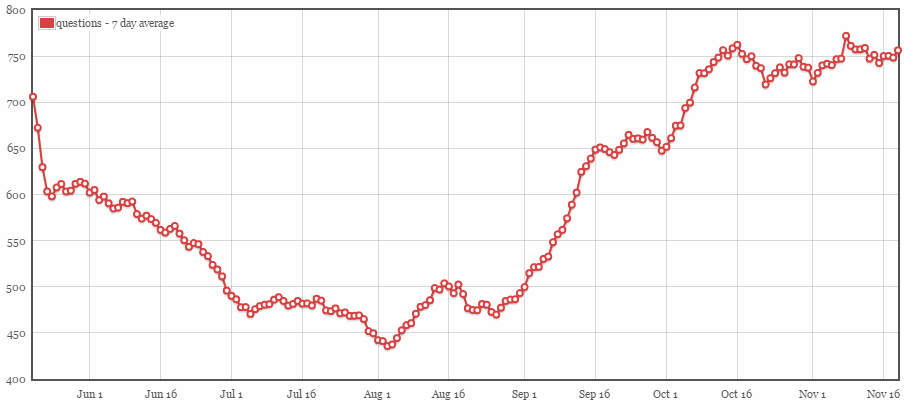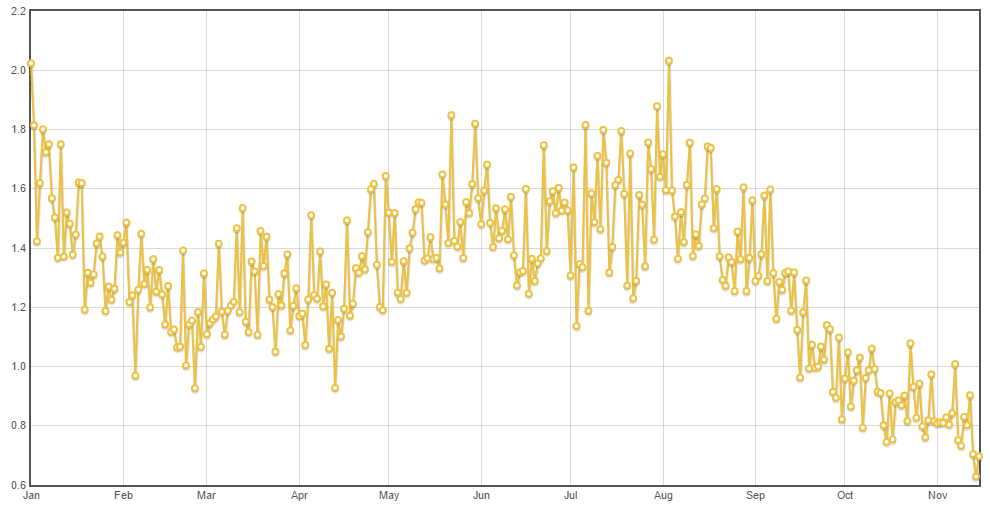Lately - just in the last few days for me, but I haven't been paying close attention - I've noticed that the scores on questions seem to be substantially lower. Digging in more deeply, questions like this one on a fairly classic but not immediately obvious complex-numbers question or even this one have started out in the hole - the latter question was at -1 when I initially wrote my (admittedly far-from-perfect) answer to it, though the question fortunately seems to have accumulated several upvotes (and lost its downvote) along the way. I'm definitely not suggesting that bad questions should be rewarded, but it seems like there's been a concerted effort from somewhere to try and raise the bar and that some not-great-but-reasonable questions are getting swept up pretty harshly (IMHO) in it.
Note that this is a distinct question from whether the quality level of the questions has declined - I feel like there's been an overall tapering of quality over the last few years but things haven't seemed particularly worse in the last few months than they were before that, whereas voting definitely feels like it's taken a downturn. Is anyone amenable to running the numbers to see if there's an actual phenomenon here, or just a perceptual issue?




